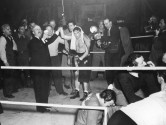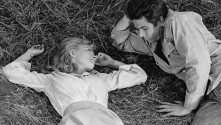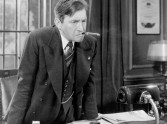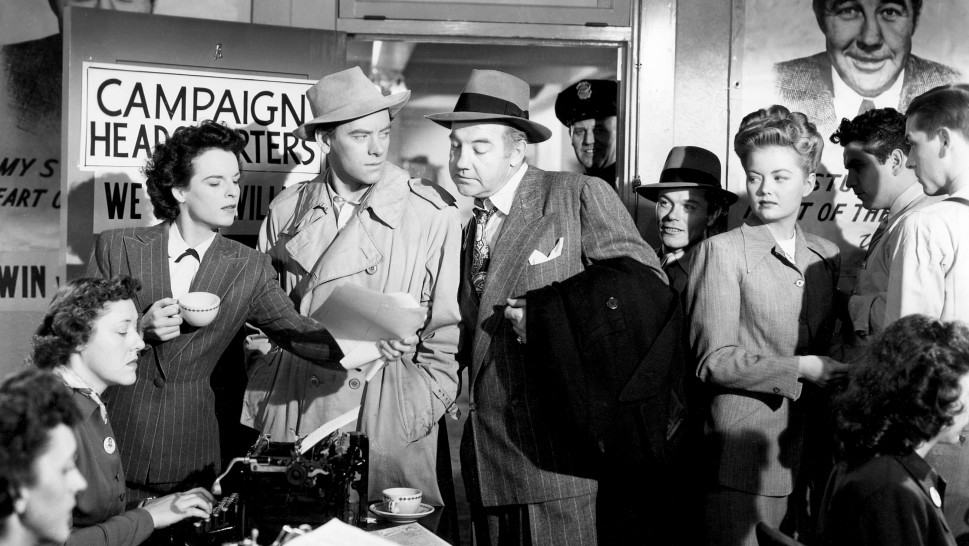
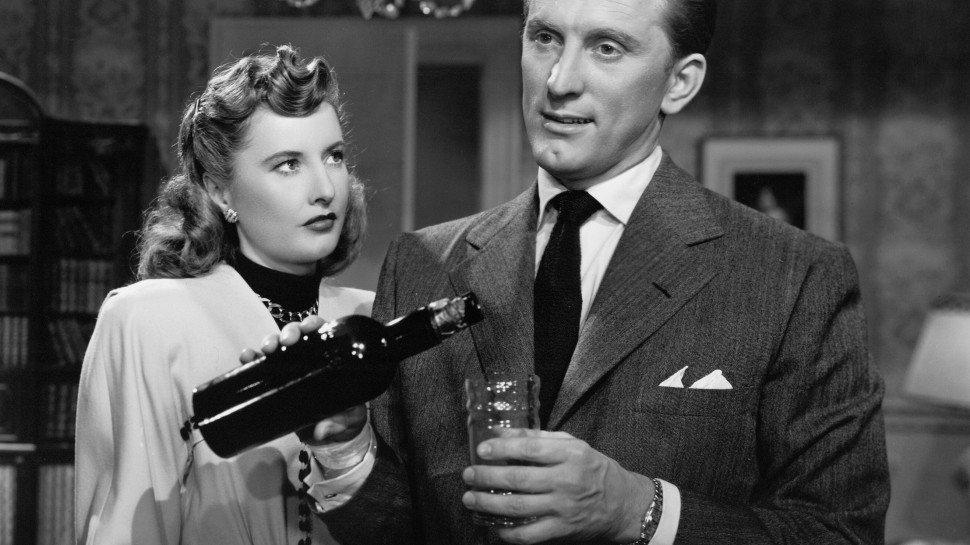
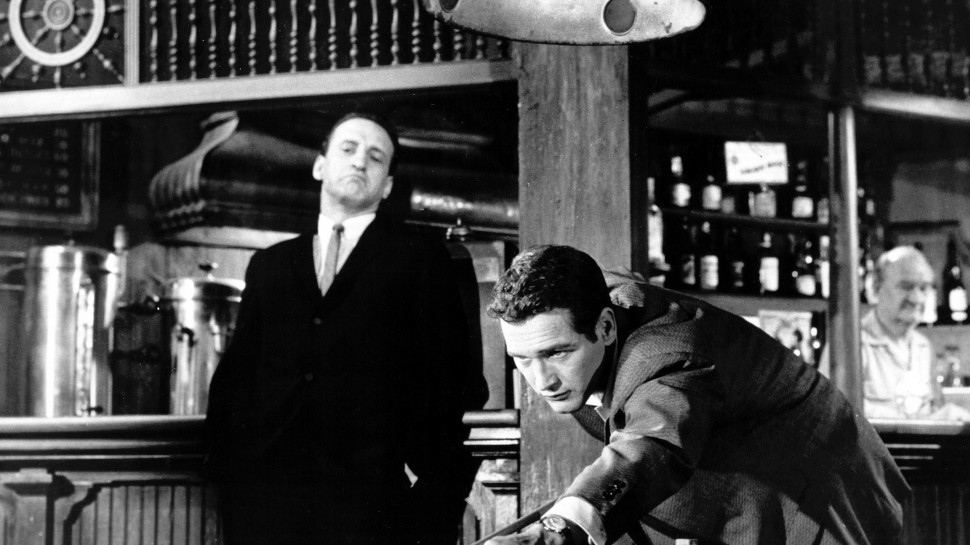
The Bodies and Souls of Robert Rossen
"Blacklisted during Hollywood’s House Un-American Activities Committee hearings in the 1940s and 50s and then vilified for naming names, Robert Rossen (1908 – 1966) has been largely neglected in the annals of critical and popular film – his legacy still hidden within the dark, embarrassing hole in Hollywood’s past.
Rossen’s parents were Russian Jewish immigrants who survived just above the poverty line in the battlegrounds of New York’s Lower East Side. As a youth, Rossen was surrounded by the very characters who would eventually inhabit his tangled worlds: gangsters, gamblers, bootleggers, hustlers, prostitutes. Inheriting an affinity for both writing and leftist politics from his Russian relatives, he was drawn to the Communist social protest drama which proliferated toward the end of the twenties and into the thirties. For Rossen, drama and politics were always intertwined – serving one another with the possibility of edifying and elevating all who struggled within an unjust structure – thus, shortly after signing up with the Hollywood studio system, he also joined the local Communist Party. In addition to deep disillusionment with the social and economic depressions of the thirties, he was impressed with the determination and hard work of like-minded Party members who also composed the most powerful portion of screenwriters in Hollywood.
With scripts cut out of the skin and bone of those on the outskirts of industrial society, he attributed his early screenwriting success to an “ability to articulate the silent cry that lay in the throats of so many people.” From the skeletons of Hollywood’s genre pictures, Rossen fleshed out unique human beings born from the dirt and dander of uncertain existence. Alcoholic, pathological gamblers of life emitting brusque, clever dialogue take surprising existential detours, their reflections tinged with a heavier moral gravity. Six scripts later, he was selected to add authenticity and grit to Raoul Walsh’s now-classic gangster film The Roaring Twenties (1939). This same corporeality would lend textured weight to his first directorial work of art, Body and Soul.
Rather than focusing on any central protagonist, he cast complex nets of characters linked by unusual, unclear relationships within the rigid boundaries of their economic and social environments. Often illustrated in dynamic visual arrangements, he respectfully treated men and women, predators and prey, with the same depth of development – even minor characters make indelible appearances in a Rossen film. Tormented by depravity, secrets, guilt and betrayal their complicated, unpredictable reactions are all part of a search for dignity, self and meaning in an illusory, materialistic world. Defensively withholding information from each other, from themselves and the audience, they flail with an ambiguous, yet driven pursuit of power and control. With no moral compass, once unleashed, it threatens to end in corrupt totalitarianism.
As his power in Hollywood escalated, the very forces Rossen described in his films ate away at the man himself. Rossen found the abstract ideals of politics – like stylized cinematic stereotypes – may not hold up to humanity’s unpredictable dips and swerves. He witnessed deception, disillusion, contradiction and paradox within the politics of studios, the Communist Party, the Screenwriters’ Guild, the US Government and Hollywood’s Left and Right. Feeling betrayed by his party while branded as one of the “Unfriendly Nineteen” by the government, he manifested the storm of external and internal politics through his dark triumph, All the King’s Men. Consolidating control as few had done before, he took over as writer, director and producer on the winding, documentary-like political exorcism, painfully shading every nuance of ethical compromise for the imagined greater good.
Needing to speak out against the Communist Party’s support of the violent Soviet dictatorship and feeling that providing a list of those in Hollywood with already publicized ties to Communism was a compromise that would enable him to keep making film, Rossen testified in 1953. During his European exile and after, Rossen continued asking questions and searching his soul through the cinema. Themes of courage, compromise and betrayal would echo mythically in Alexander the Great and resignedly in They Came to Cordura. Finally, after his most exquisite expressions of a tormented soul – The Hustler and Lilith – he died of a coronary occlusion at age 57.
If Rossen’s critics had listened to his films, they would have learned that one deed does not define a person. Within the silent resonance of the Red scare lies an earnest, thoughtful craftsman of complex diagrams of human nature under duress.
The Harvard Film Archive proudly presents all of the directed films and many of the screenwritten works by the overlooked artist Robert Rossen. — Brittany Gravely
The Ash Center for Democratic Governance and Innovation at Harvard Kennedy School is hosting a talk after the screening of All the King’s Men on December 6 – discussing the film, how politics has or has not changed in the last six decades and the health of American democracy today.


